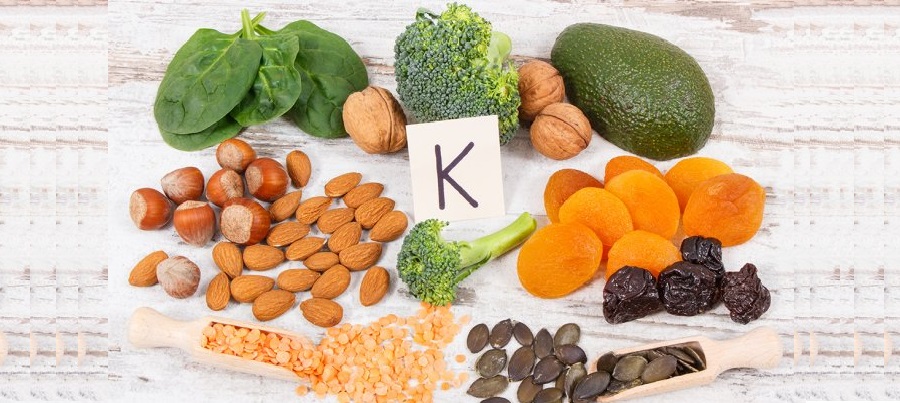Vitamin K is a fat-soluble vitamin that plays a crucial role in blood clotting and bone health. It can be found in leafy green vegetables, vegetable oils, and certain fruits. There are two main forms of vitamin K: vitamin K1, also known as phylloquinone, which is found in plant-based foods, and vitamin K2, also known as menaquinone, which is found in animal-based foods and fermented foods. Vitamin K deficiency is rare but can lead to serious health problems.
What does vitamin K do?
Vitamin K plays several important roles in the body, including:
-
Blood clotting: Vitamin K helps the blood to clot, which is important for preventing excessive bleeding when an injury occurs.
-
Bone health: Vitamin K plays a role in the formation and maintenance of strong bones by helping the body utilize calcium.
-
Heart health: Some studies suggest that adequate intake of vitamin K can help to reduce the risk of heart disease by improving the elasticity of blood vessels and reducing the formation of calcium deposits in the arteries.
-
Cancer: Some studies suggest that vitamin K may play a role in reducing the risk of certain types of cancer, including prostate and lung cancer.
-
Brain health: Some studies suggest that vitamin K may be beneficial for brain health, possibly by reducing the risk of Alzheimer's disease and improving cognitive function.
It's important to note that more research is needed to confirm the effects of vitamin K on these areas and to determine the optimal levels for health.
Which food has high vitamin K?
Some foods that are high in vitamin K include:
-
Leafy green vegetables: Kale, spinach, broccoli, and collard greens are all excellent sources of vitamin K.
-
Vegetable oils: Soybean, canola, and olive oils are all high in vitamin K.
-
Fruits: Blueberries and kiwi are good sources of vitamin K.
-
Meat and dairy products: Chicken, beef, and eggs, as well as cheese and butter, contain small amounts of vitamin K2, also known as menaquinone, which is found in animal-based foods and fermented foods.
-
Fermented foods: Natto, a traditional Japanese dish made from fermented soybeans, is an especially rich source of vitamin K2.
-
Herbs and Spices: Parsley, basil, thyme, and sage are also good sources of vitamin K.
It's important to note that the amount of vitamin K in a food can vary depending on how it was grown or prepared, so it's best to consult a nutritionist or a healthcare professional for specific recommendations.
Can one overdose Vitamin K?
Vitamin K is generally considered safe at the recommended daily intake levels. However, high doses of vitamin K can be toxic and can cause side effects such as nausea, diarrhea, and jaundice (yellowing of the skin and eyes).
It's very unlikely to overdose on vitamin K from food sources. Vitamin K toxicity is more likely to occur from taking high doses of supplements, especially if you are taking blood thinners such as warfarin (Coumadin). It is important to consult a healthcare professional before taking any vitamin supplements, especially if you are on blood thinners or other medications.
Additionally, it's important to note that individuals with certain medical conditions, such as liver or gallbladder disease, should avoid taking high doses of vitamin K.
It is always important to follow the recommended dosage and talk to a healthcare professional if you're unsure about the safety of taking certain supplements.
How much vitamin K do I need daily?
The recommended daily intake of vitamin K varies depending on your age and gender. The recommended daily intake levels for vitamin K are as follows:
- Adult men: 120 micrograms per day
- Adult women: 90 micrograms per day
- Pregnant women: 90 micrograms per day
- Breastfeeding women: 90 micrograms per day
Keep in mind that these are the recommended daily intake levels, and your specific needs may vary depending on your individual health status. It's always best to consult a healthcare professional or a registered dietitian for personalized recommendations.
It's important to note that the majority of people can meet their daily needs for vitamin K by eating a balanced diet that includes a variety of fruits, vegetables, and other nutrient-dense foods. Leafy green vegetables such as spinach, collard greens, and kale, as well as vegetable oils, are especially good sources of vitamin K.


